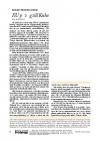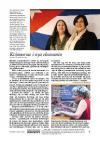Foreign aid, debt and growth in Zambia
| Upphovspersoner: | Andersson, Per-Åke | Bigsten, Arne | Persson, Håkan |
|---|---|
| Utgivare: | Nordiska Afrikainstitutet | Uppsala : Nordiska Afrikainstitutet |
| År: | 2000 |
| Ämnesord: | Zambia, Southern Africa, Development aid, external debt, economic development, investment, economic conditions, Business and economics, Ekonomi |




